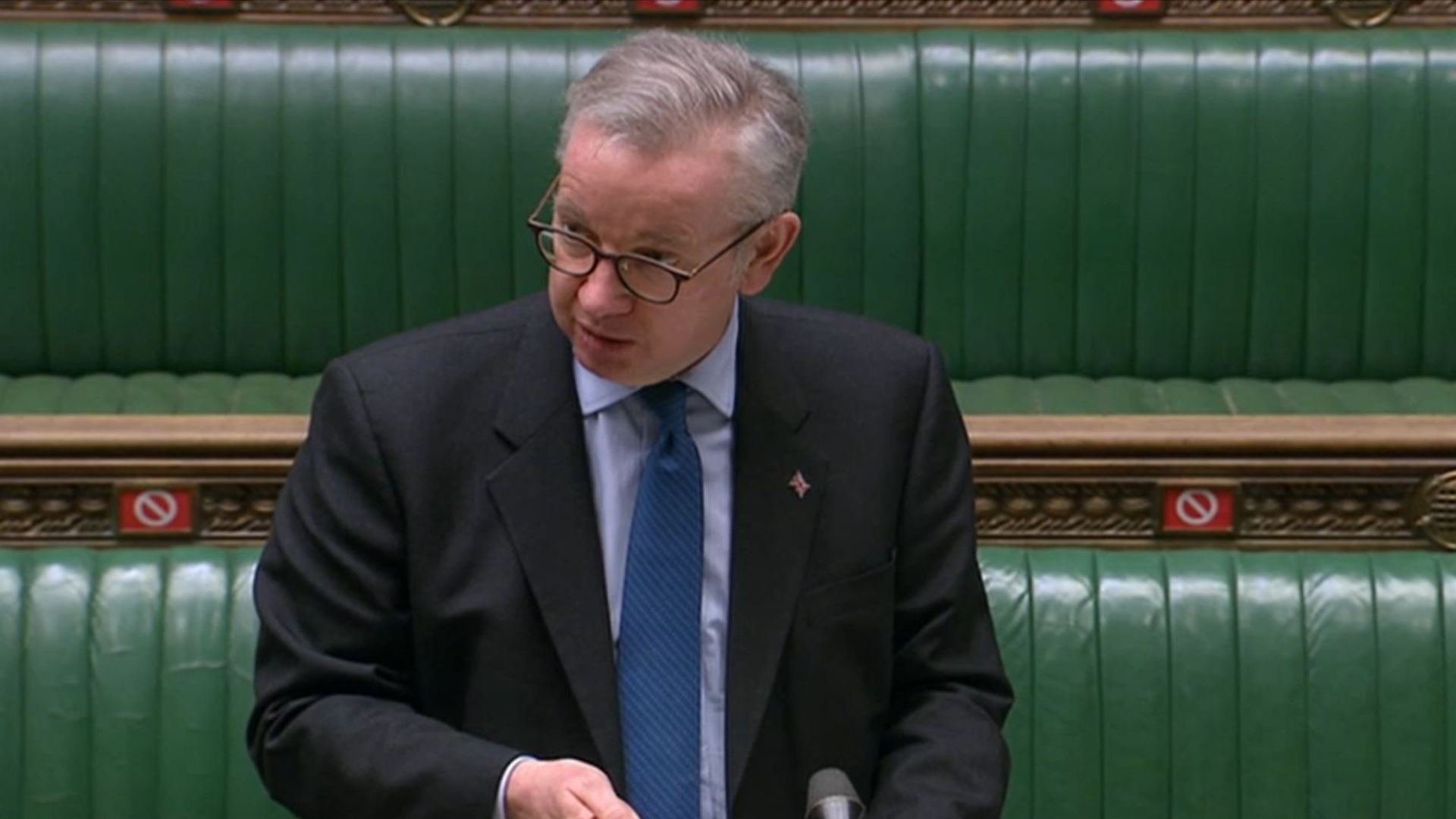
Michael Gove has refused to rule out suing Nicola Sturgeon’s government if it tries to hold a second referendum on Scottish independence, in a briefing with journalists.
The cabinet minister avoided answering the question when probed twice by reporters.
Asked if he would take Sturgeon to court over her proposals to hold a new vote, Gove said: “I’m not getting into the whole question of courts and litigation and all the rest of it.
“If we start theorising in that area then we’re sucking oxygen out of the room when we should all be concentrating on recovery.
“Other people will, I’m sure, want to speculate or theorise about these questions, but to my mind every second spent asking questions about the Supreme Court is a second wasted when it comes to concentrating on the issues at hand.”
When asked once again to rule out legal action, Gove insisted he was “not thinking about it”.
He said: “I’m not going there. We’re concentrating on recovery in the NHS, recovery in the economy, recovery in education, and recovery in the criminal justice system. That is our focus.”
He also suggested voters who backed the first minister were not necessarily doing so to support independence.
He said: “My interpretation of the election campaign in Scotland was that the first minister put an emphasis, and I think she was right to do so, on Covid recovery.
“I also think it was also noteworthy that in a constituency vote more constituencies voted for union parties overall.”
Scotland’s first minister has pledged to hold a second referendum by 2022 after her party won the largest number of votes in Thursday’s Holyrood election.
The SNP fell one seat short of an overall majority in the Scottish parliament elections, but with eight Scottish Greens elected, Holyrood will have a pro-independence majority.
After winning government on Saturday, Sturgeon reportedly told UK prime minister Boris Johnson that a second vote on Scottish independence was a matter of “when – not if”.
She told the BBC’s Andrew Marr Show on Sunday that she did not believe any bid for a second referendum would end up in a legal challenge from the UK government.
She also warned that any such move it would mean Westminster “saying the UK is no longer a union based on consent”.
The first minister was also asked if the legislation for a referendum could be put before the Scottish parliament early next year and said she would not “rule that out”.
Warning: Illegal string offset 'link_id' in /mnt/storage/stage/www/wp-includes/bookmark.php on line 357
Notice: Trying to get property 'link_id' of non-object in /mnt/storage/stage/www/wp-includes/bookmark.php on line 37






